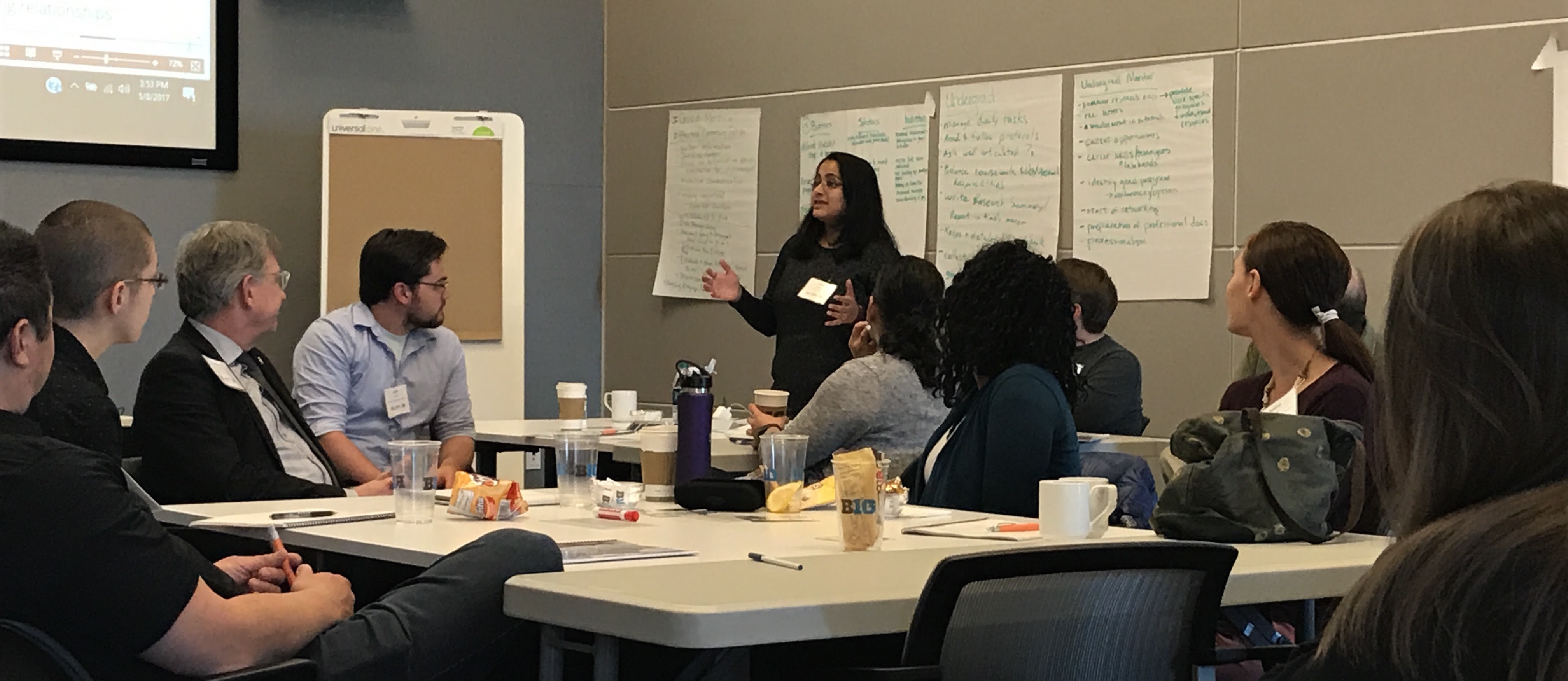By Laurie Risner
NRMN-CAN hosted two concurrent Mentor Training Workshops in May, 2017. The workshops were organized in collaboration with the NRMN Mentor Training Core and were held at the Big Ten Conference Center in Rosemont, IL, on May 7-9, 2017. The 57 attendees from 13 institutions included 20 postdoctoral trainees, 23 faculty and staff participants, 5 Master Facilitators from the NRMN Mentor Training Core, and 9 NRMN-CAN committee members or guests.
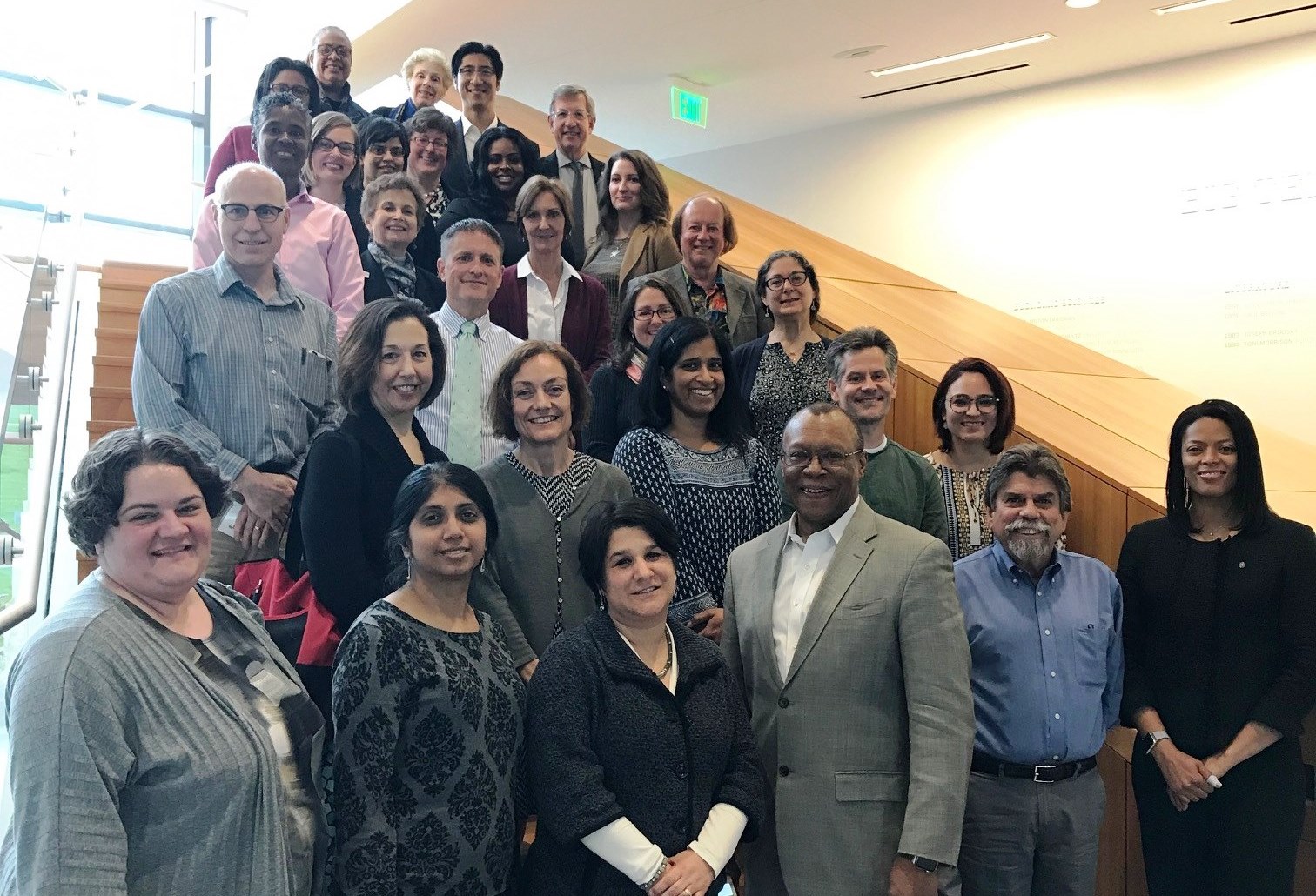
Above: NRMN-CAN Mentor Facilitator Training Workshop, May 8-9, 2017
The NRMN-CAN “Train-the-trainer” Mentor Facilitator Training was offered to increase the number of faculty and staff in the Big Ten Academic Alliance who will offer research mentor training for students, postdocs and faculty on Big Ten campuses. The workshop was organized and led by Master Facilitators Dr. Melissa McDaniels of Michigan State University, Dr. Stephen Thomas, University of Maryland, and Emily Utzerath, University of Wisconsin-Madison. Participants (35% UR), who included several Deans, Professors, and Training Program or Diversity Directors, were welcomed to the workshop by Dr. Nancy Schwartz, NRMN-CAN PI, University of Chicago.

On the first morning of the workshop, the participants had the opportunity to become familiar with and experience the evidence-based research mentor training curricula, based on the Entering Mentoring series. In the afternoon, participants gained confidence in their facilitation skills by practicing mentor training implementation in small groups overseen by the Master Facilitators. The first day ended with a networking reception which gave the participants time to meet fellow facilitators from other Big Ten institutions as well as from their own campuses.
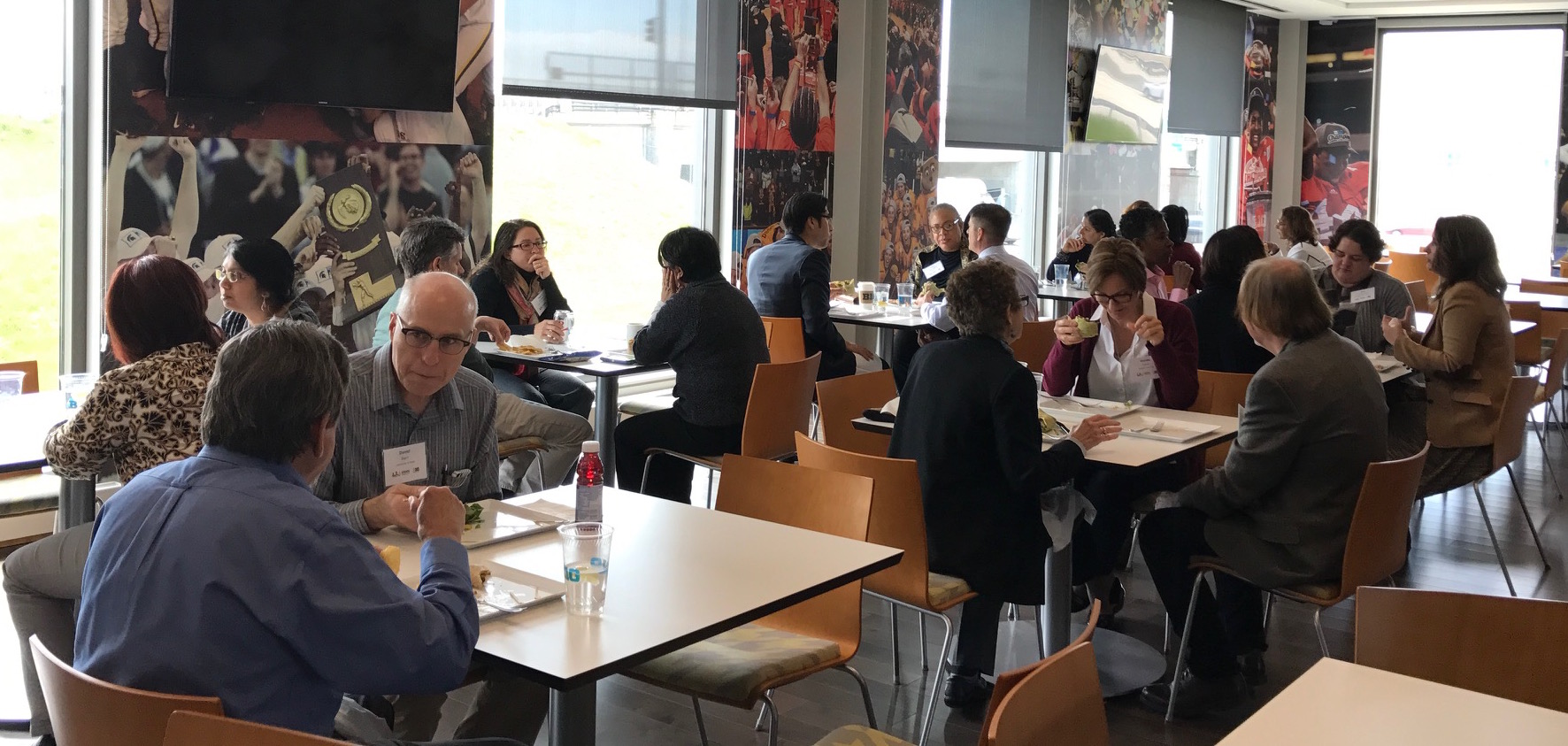
On day 2, the Master Facilitators and participants discussed on-campus workshop implementation challenges, strategies and resources and participants actively delved into the numerous resources available to them by undertaking an online “scavenger hunt”. The workshop ended with each participant coming away with a plan to implement mentor training on their own campus over the next year. The 23 participants now join the 44 faculty and staff throughout the Big Ten who were trained as mentor Facilitators by NRMN-CAN last March, 2016.

After the workshop, participants remarked, “The pacing and facilitator “mirroring” during the first part of the workshop were phenomenal. I enjoyed learning alongside so many capable trainers” and “there was a wonderful synergy between the workshop leaders and the participants. Shared goals became evident. After initial skepticism over the initial group agreements, I came to believe that it was a great exercise in establishing mutual respect and embracing the amazing richness of the diversity in the room– an excellent basis from which to start the workshop. The leaders used excellent active learning approaches that helped us get functional glimpses into sample exercises, cases studies, and facilitating techniques that we can implement in our own mentor training activities.”

Above: NRMN-CAN Postdoctoral Mentor Training Workshop, May 7-8, 2017
The NRMN-CAN Postdoctoral Mentor Training Workshop kicked off on Sunday evening, May 7th, at the Aloft Hotel with an informal networking reception for the 20 Big Ten postdocs in attendance to meet and network with each other and the NRMN-CAN committee. The reception was followed by a welcome and introduction to NRMN-CAN by Dr. Nancy Schwartz, NRMN-CAN PI, and the opening workshop activities. NRMN Master Facilitators Andrew Greenberg, PhD, University of Wisconsin-Madison, and Robert Tillman, PhD, University of Texas MD Anderson Cancer Center organized the curriculum and facilitated the workshop, which was based on the Entering Mentoring series. This NRMN-CAN Mentoring Up workshop was designed to be specifically tailored to postdocs who are in the dual role of mentees to their PI and mentors in training as future faculty members.
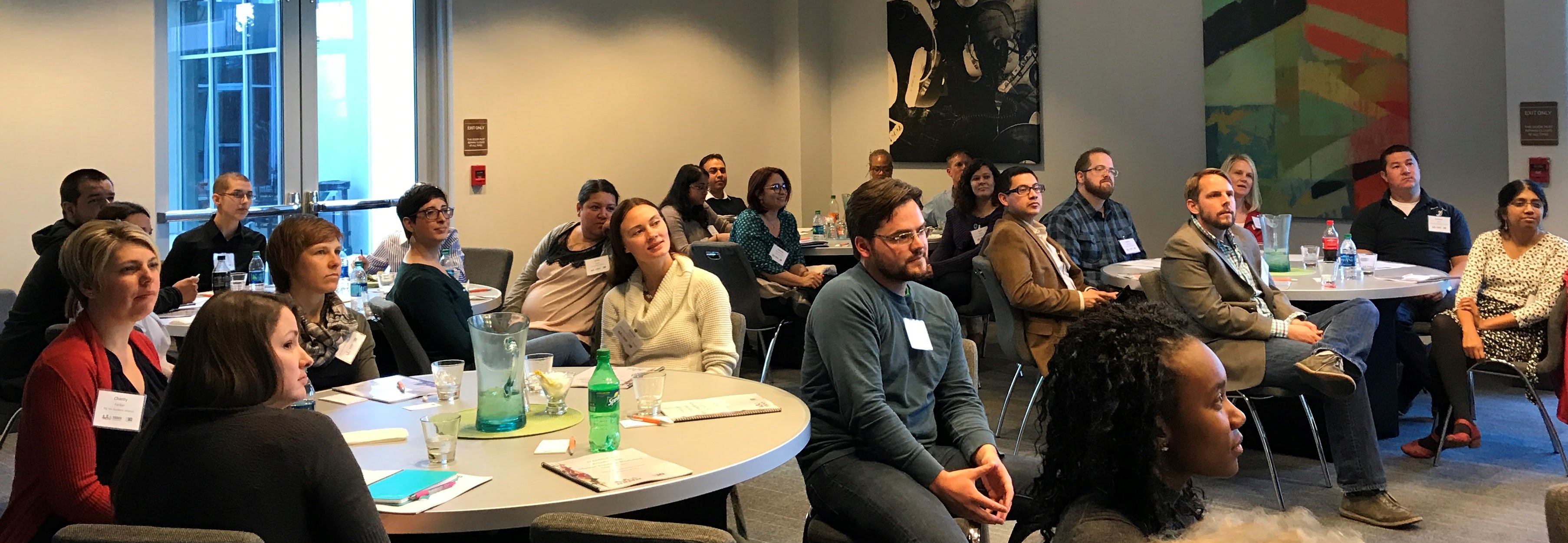
The full NRMN Research Mentor Training Curriculum was implemented over the 1.5 day workshop and covered core mentoring competencies, all relevant to postdocs, including: Maintaining Effective Communication, Addressing Equity and Inclusion, Aligning Expectations, Fostering Independence, and Promoting Professional Development, as well as Promoting Self-Efficacy, Cultivating Ethical Behavior, and Enhancing Work-Life Integration. Postdocs discussed case studies with their small groups and participated in big group discussions led by the Master Facilitators.
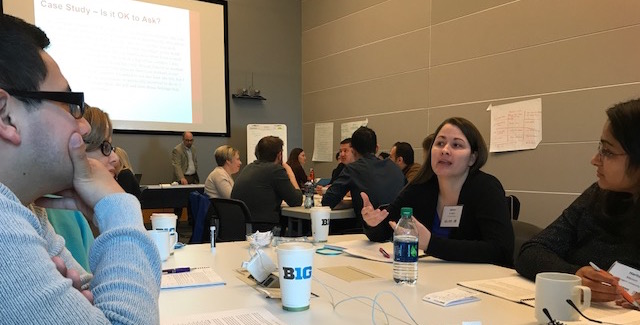
The 20 Postdoc participants (65% female and 45% UR) attended from 9 institutions across the Big Ten Academic Alliance and included 5 postdocs who have attended previous NRMN-CAN workshops. All found it a valuable training experience and most (>90%) plan to make changes to their mentoring relationships as a result of this experience. Postdocs commented, “Before the training, I was really frustrated with the relationship (with my mentor) but didn’t feel like there was anything I could do about it. Now I feel more empowered and have ideas about how I might approach that first conversation” and “The discussions were consistently engaging and eye-opening, especially when they included people from different disciplines. It was joy to interact with such a range of thoughtful, sharp, motivated people who care about mentoring.”
